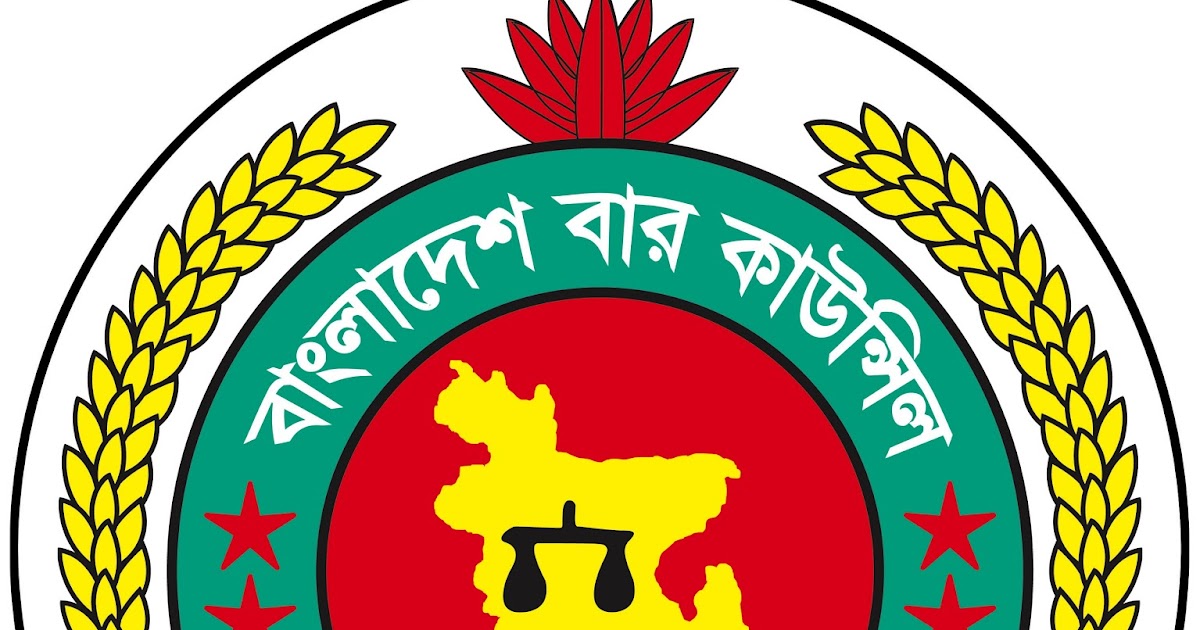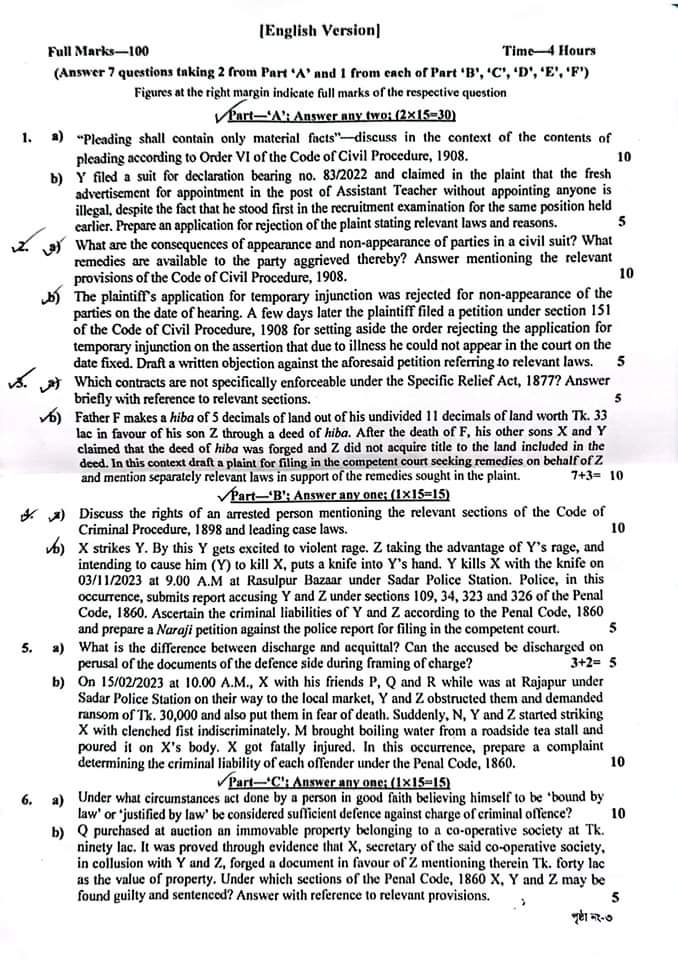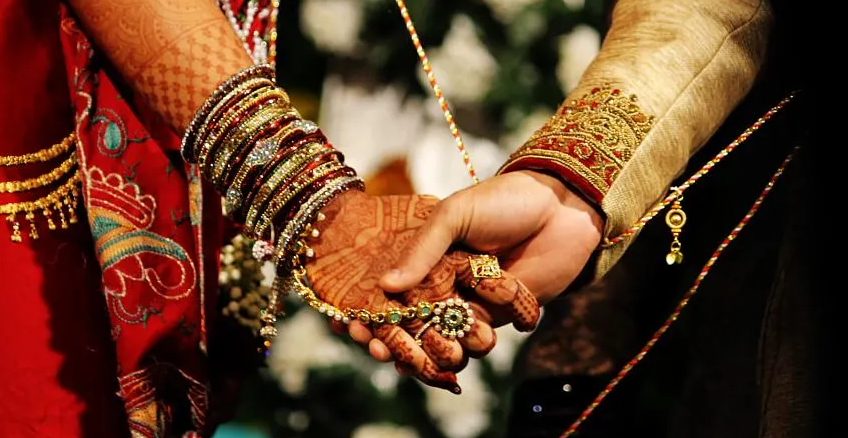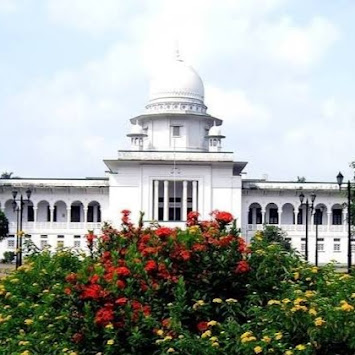Dower (Mahr) Under Islamic Law in Bangladesh
Dower or Mahr
Dower/Mahr is the sum of money or property which is conveyed to a Muslim wife from her husband on marriage.
It can also be regarded as a gift that the Muslim bridegroom offers the bride upon marriage. It is said in Hedaya that the payment of Mahr is enjoined by the law merely as a token of respect for the woman. It cannot be waived by husband or wife whoever gives Talaq. Thus, A Muslim wife is entitled to get mahr as of rights in Islam as Allah (SWA) says:“Give women ‘you wed’ their due dowries graciously. But if they waive some of it willingly, then you may enjoy it freely with a clear conscience.”………….Al Quran 4:4
It is an integral part of every Islamic marriage because there cannot be any marriage without dower. Under Muslim law, where no dower is expressly fixed, the law confers the right of dower upon the wife as necessary effect of marriage. However, dower may be specified orally or in written form before the marriage contract, at the time of the marriage, or even after the completion of the marriage.
Definitions:
‘Mahr’ means ‘sadaqa’ which is commonly used as "dower” in English. Authors have defined it from different points of view.
According to Mulla, "a dower is either a sum of money or property which the wife is entitled to receive in the consideration of marriage from the husband."
According to Ameer Ali, "a dower is a kind of consideration that belongs to the wife."
In the famous case of Abdul Kadir v. Salima,(1886), Honourable Justice Mahmood held following definition:
owner under Muslim law is a sum of money or property which is promised by the husband to be paid or delivered to the wife in consideration of marriage and even if the dower is not expressly mentioned at the time of marriage, the wife still has the right of dower.
Subject-Matter of Dower:
Anything, having value, may be given as dower. It may be a certain sum of money or a specific property of any kind i.e. or immovable, tangible or intangible. But, in case of specified dower, money or property must be in existence and must be reasonably certain. If any property is settled as dower, it must be permitted to be used or consumed under Islamic law. Otherwise it will be presumed that no specified dower is settled. Rents, profits or other beneficial interests of movable or immovable property or any business may also be settled as Dower.
Amount of Mahr:
There are distinctions of opinions among the Islamic jurists regarding the amounts of dower. For example, Hanafi law specifies 10 Dirhams as dower and Malaki Law fixes it as 3 Dirhams But no amount is fixed under Shafie law. The amount of dower is now fixed on the social status of bride and economic condition of groom and it may vary person to person and place to place. Following examples form Hadith can clarify the matter
“The Mahr fixed by Prophet (Pace upon him) for her daughter, Fatima, wife of Ali was 500 Dirhams. A dirham (derived from the Greek) is the name of Silver coin of 2.97 grams in weight. Again, it is said that in the case of an extremely poor man, the Prophet requested him to teach the Quran to his wife.”
Classification of Dower:
There are Two Types of Dower: 1. Specified Dower; 2. Unspecified Dower.
1. Specified Dower/ Mahr-ul-Musamma:
When the dower is specified by the parties at the time of marriage contract, it is called specified dower. The common practice is to settle the amount of dower at the time of the marriage. Specified Dower may either be Prompt or Deferred.
a) Prompt Dower:
Prompt Dower is payable immediately after the marriage if demanded by the wife. The Arabic term for ‘Prompt’ Dower is “Muajjal”. Whether the consummation (intercourse) has taken place or not, prompt dower may be demanded by the wife at any time she likes. The wife may refuse consummation till the husband does not pay the Prompt Dower on demand provided that the marriage is not consummated.
b) Deferred Dower:
Deferred Dower is payable on the dissolution of marriage or on the death of the husband or on the happening of a specified event. The Arabic term for ‘Deferred’ Dower is “Muwajjal”. Usually some portion of the Specified Dower is fixed as Prompt and the rest as Deferred.
2. Unspecified Dower/mahr-ul misal:
If the amount of dower is not specified at the time of marriage, it is called unspecified or proper dower or customary Dower. This dower is fixed by the court of law. Ascertaining the amount of unspecified dower depends on circumstances because it varies case to case. Following principles of law are taken into consideration while fixing unspecified dower:
a) The amount of dower is fixed as per the personal qualifications of the wife or the social position of the wife’s father.
b) Then dower is fixed upon the wife’s female paternal (father’s) relations e.g. depending on the amount which had been fixed in the earlier marriages either of her sisters or paternal aunts (father’s sisters) who are considered to be her equals. But, the amount of dower fixed in the marriage of wife’s mother or other girls of her mother’s family is not considered.
Where Portion of Prompt or Deferred Dower is not mentioned:
When in Kabin-nama the portion is not mentioned that what part of Specified Dower is Prompt or what part is Deferred then it is considered that the whole part of Dower is Prompt Dower. As section 10 of the Muslim Family Laws Ordinance, 1961:
“Where no details about the mode of payment of dower are specified in the nikah nama, or the marriage contract, the entire amount of the dower shall be prescribed to be payable on demand.”
Suit for recovery of Dower:
A suit for recovery of dower has to be instituted in the Family Court. (Section 5 of the Family Courts Ordinance, 1985). After Talaq, if the husband does not pay the dower money to the wife, then for that dower money, wife has to file a suit within 3 years after Talaq.






